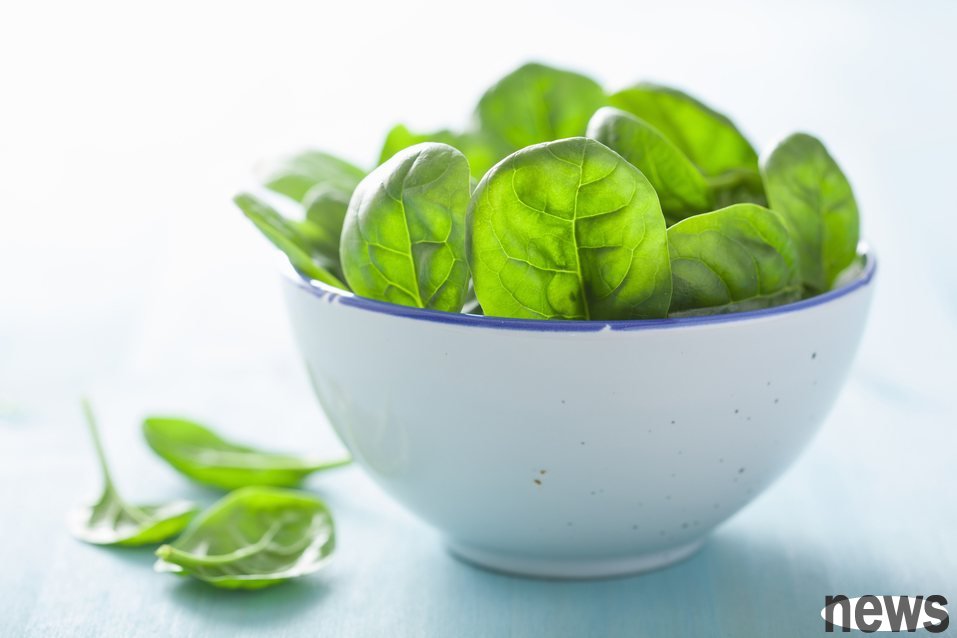Is the oxalic acid salt in spinach harmful to the kidneys? Professor s analysis: It is recommended to avoid eating if you suffer from 1 disease.

I published a vitamin C inducing acute kidney injury on September 6, 2024. Reader HSU left a message on February 19, 2025:
Searched Professor's article, this article mentions crystals of oxalic acid salt, which leads to acute kidney injury. Please ask how to get the oxalic acid in your diet. If you don’t look for it, you probably can’t imagine it. Most green leaves are very high and have very high spices, including almonds, cashews, peanuts, or soybeans that vegetarians often eat. Some articles recommend not exceeding 50mg per day. But after eating three daily meals in a day, you may get over 1,000 mg. Some articles say that oxalic acid is an important nutrient in the human body. Most of the other articles only mention synthesizing oxalic acid into oxalic acid and excreting it out of the body. Actually, I don’t know what it will be like to eat a plate of fried Polygonum dishes and what it will harm to the kidneys. Please help me solve my questions.I published six months ago that I have acute kidney injury, which is introducing a clinical case study that has just been released. Vitamin C–Induced Oxalate Nephropathy: An Underappreciated Consequence of Dietary Supplements.
In fact, "Vitamin C's oxalic acid disease" has been reported in medical papers for a long time, such as:
2022: Acute Oxalate Nephropathy Caused by Excessive Vegetable Juicing and Concomitant Volume Depletion (excessive vegetable juice and accompanied by insufficient volume lead to acute oxalic acid disease). We report a 68-year-old male suffering from severe acute kidney injury and end-stage kidney disease. Six months ago, he began eating fruit and vegetable juices rich in oxalic acid, which are rich in spinach every day. Excessive intake of vitamin C can cause oxalic acid disease.
2023: Oxalate Nephropathy: A Case Report of Acute Kidney Injury Due to Juice Diet. Vitamin C will turn into oxalic acid, causing deposition and kidney tubules to damage. Therefore, careful consideration should be taken before replenishing Vitamin C.
2024: Acute oxalate nephropathy: exploring the role of excess dietary oxalate intake. We hereby report two cases of acute oxalate salted kidney disease. Oxalic acid in the diet or its predecessor, vitamin C, is the cause of oxalic acid exposure.
As for what readers say, "Some articles say that oxalic acid is an important nutrient in the human body", I can say with certainty that this is wrong as far as current evidence is concerned.
I published on 2017-7-17, raw, cooked and anti-nutrients, which I said, "anti-nutrients" are "elements that will hinder the absorption of nutrients by humans", such as oxalic acid combined with galactus to prevent its absorption. I also say that oxalic acid is found in many vegetables, especially spinach.
In a 2020 article, there are several sentences: Oxalate salt is not only a plant-derived molecule, but also an ultimate toxic hormone, and has no known physiological functions for the human body. Herbal acid is associated with kidney disease and injury, including oxalate oxalate, acute and chronic kidney disease. Please see Dietary Oxalate Intake and Kidney Outcomes
As for the "hazards of spinach to the kidneys" that readers are worried about, I would like to read these two articles:
The National Kidney Foundation published Leafy Green Vegetables on 2023-1-2: Green Vegetables such as kale, spinach and cabbage are nutritious and provide vitamins A, C, E, K and B vitamins. They also offer iron, iron, drill and calcin. But if you have oxalate cervical stones, consult your doctor or kidney nutritionist to understand the need to limit oxalate salt.
Cleveland Clinic published 7 Reasons You Should Eat More Spinach on 2024-2-16: Spinach is rich in vitamins, antioxidants and fibers, and has a low heat rate of —— this makes it a super food. Spinach is beneficial to the brain, eyes, kidney tract, blood, blood pressure, etc. But people with certain diseases may need to choose other green leaves vegetables: If you are prone to kidney stones, the high content of oxalate salt in spinach may cause more stone formation.
So, for most people, spinach is beneficial and harmless, but if you have the risk of oxalic acid salted kidney disease, avoid it.
Original text: The harm of spinach to the kidneysResponsibility Edit: Gu Zihuan




